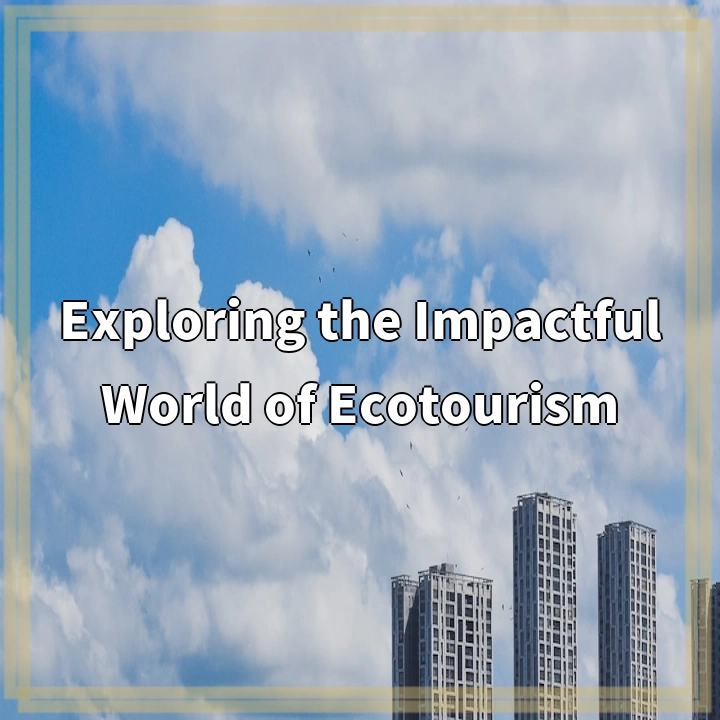
What is Ecotourism?
Ecotourism, also known as ecological tourism, is a type of travel that promotes responsible and sustainable practices in order to minimize negative impacts on the environment and local communities. It aims to educate travelers about biodiversity conservation, cultural preservation, and sustainable development while providing an opportunity to experience and appreciate natural and cultural wonders.
Real-world problems associated with Ecotourism
1. Greenwashing:
One of the major challenges in the ecotourism industry is ‘greenwashing,’ where companies falsely claim to be sustainable without implementing substantial environmentally-friendly practices. This can mislead tourists, making it difficult for them to make informed choices.
2. Overcrowding and degradation of natural areas:
Ecotourism, when not properly managed, can lead to overcrowding in delicate ecosystems, resulting in pollution, habitat destruction, and disruption of natural wildlife behavior. This can lead to long-term negative impacts on biodiversity and the overall health of the environment.
3. Loss of cultural authenticity:
As ecotourism gains popularity, there is a risk of cultural commodification and loss of authentic local experiences. Traditional customs and practices might be altered to cater to tourist expectations, leading to the erosion of local cultures and communities.
4. Displacement of local communities:
In some cases, ecotourism can result in the displacement of indigenous communities from their traditional lands, as tourism infrastructure and activities take precedence. This not only disrupts their way of life but also risks the transmission of cultural knowledge and values to future generations.
5. Unsustainable resource use:
If not managed carefully, ecotourism can contribute to unsustainable consumption patterns, such as excessive water usage, energy consumption, and waste generation. These practices can strain local resources and have a negative impact on the surrounding ecosystems.
Despite these challenges, the potential for positive change through ecotourism remains significant. By implementing sustainable practices, raising awareness about environmental and cultural issues, and partnering with local communities, ecotourism can become a powerful tool for conservation and community development.

Solutions for the Challenges of Ecotourism
1. Certification and Transparency:
Implementing third-party certifications and transparent reporting can help combat greenwashing in the ecotourism industry. By adhering to recognized standards, businesses can build trust and credibility by providing accurate information about their sustainable practices.
2. Sustainable Visitor Management:
Applying strict visitor management strategies, such as limiting the number of tourists in sensitive areas, implementing trail systems, and monitoring visitor activities, can help prevent overcrowding and minimize the degradation of natural areas.
3. Community Involvement and Empowerment:
Engaging and empowering local communities in ecotourism initiatives is essential for preserving cultural authenticity. Providing opportunities for communities to actively participate, benefit, and make decisions in ecotourism activities helps ensure their cultural heritage is respected and sustained.
4. Responsible Land Rights Policies:
Implementing strong land rights policies that protect indigenous communities’ rights to their traditional lands is crucial. This includes consent-based tourism development and fair benefit-sharing agreements that prioritize community involvement and minimize displacement.
5. Sustainable Resource Management:
Conserving resources through efficient practices, such as using renewable energy sources, minimizing water use, and reducing waste generation, can mitigate the negative environmental impacts of ecotourism. Implementing sustainable resource management plans and educating visitors about responsible resource consumption can contribute to long-term sustainability.
By adopting these solutions and working collaboratively among stakeholders including businesses, communities, governments, and tourists, we can overcome the challenges associated with ecotourism. Through responsible and sustainable practices, we can maximize the positive impacts of ecotourism on environmental conservation, cultural preservation, and community development.















